Science Universities
Top 10 Science Universities in China
-
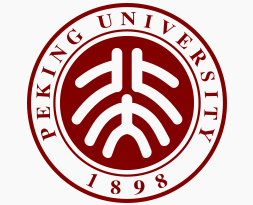
Peking University is a major research university located in Beijing, and a member of the C9 League. It is the first established modern national university of China, founded as the "Imperial University of Peking" in 1898 as a replacement of the ancient Guozijian. By 1920 it had become a center for progressive thought. Today, Peking University is frequently placed as one of the best universities in China by many national and international rankings. In addition to academics, Peking University is especially renowned for its campus grounds, and the beauty of its traditional Chinese architecture. Throughout its history, the university has educated and hosted many prominent modern Chinese thinkers, including figures such as: Lu Xun, Mao Zedong, Gu Hongming, Hu Shih, Li Dazhao, and Chen Duxiu. Peking University was influential in the birth of China's New Culture Movement, May Fourth Movement, the Tiananmen Square protest of 1989 and many other significant events.
-

Nanjing University is one of the oldest universities in China. A comprehensive university, Nanjing is highly ranked among Chinese institutions of higher learning. It is a member of the C9 League and Yangtze Delta Universities Alliance. Following many changes through dynasties since CE 258, it was established as a modern new-type school in 1902 in the end period of Qing Dynasty, and became a modern university in the early 1920s, the early years of Republic of China, and is the first Chinese modern university with the combination of education and research. Before the eve of establishment of People's Republic of China in 1949, the name was changed from National Central University to Nanjing University. Nanjing University is a comprehensive research university. It is a national university directly under the Ministry of Education of PRC, largely financed by China central and also local Jiangsu provincial finance.
-

Fudan University, located in Shanghai, is one of the oldest and most selective universities in China, and is a member of the C9 League and Universities 21. Its institutional predecessor was founded in 1905, shortly before the end of China's imperial Qing dynasty. Fudan University is composed of four campuses, including Handan, Fenglin, Zhangjiang, and Jiangwan. Starting from the 1950s, Fudan has enrolled international students — one of the first few institutions in China to do so. Since then, Fudan has accepted and trained over 10,000 foreign students from 100 countries and regions worldwide. At the end of 2006, there were 2,812 international students studying at Fudan University, ranked number 2 in the nation. Half of them were actively pursuing degrees, the rest were general visiting scholars. In addition, Fudan enrolls over 1700 short-term students each year.
-
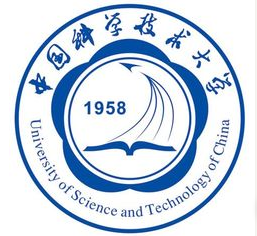
The University of Science and Technology of China (USTC) is under the jurisdiction of the Chinese Academy of Sciences (CAS). As a key university of the nation, it is noted for its advanced science and high technology programs, unique management studies and well-tailored disciplines in the humanities. USTC was established in Beijing in September 1958, with Guo Moruo as its first president. Its establishment was regarded as a major event in China's history of education and science. It has been one of the first institutions included in China's "985 Program" and "Project 211", and the only university participating in the National Program for Knowledge Innovation. Over the years, USTC has adhered to its motto of “being both politically sound and professionally competent and integrating theory with practice” and promoted a style of “living for innovations.” Its high-quality educational work, characterized by ground-breaking studies, combination of teaching and research and integration of theory with practice, has produced a large number of highly accomplished people and many significant, internationally-recognized, original research results.
-
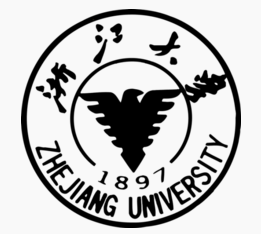
Zhejiang University, sometimes referred to as Zheda, is a national university in China. Founded in 1897, Zhejiang University is one of China's oldest institutions of higher education. It is a member of the C9 League and Yangtze Delta Universities Alliance.Zhejiang University is located in the city of Hangzhou, Zhejiang Province, approximately 112 miles (180 km) southwest of Shanghai. Zhejiang University Library collection contains about 6.9 million volumes, making it one of the largest academic libraries in the country.
-
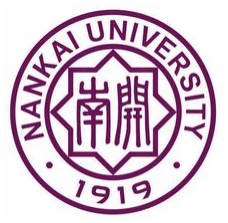
Nankai University is commonly known as Nankai, is a public research university based in Tianjin on mainland China. Founded in 1919 by educators Zhang Boling (1876-1951) and Yan Fansun (1860-1920), Nankai University is a member of the Nankai serial schools. It is the alma mater of former Chinese Premier and key historical figure Zhou Enlai. Nankai University is regarded as one of the top and first class universities in China.
-
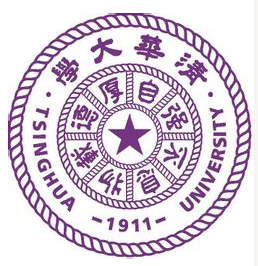
Tsinghua University is a national key university located in Beijing. It was originally established in 1911 under the name “Tsinghua College” and had been renamed several times since then, from “Tsinghua School” which was used one year after its establishment to “National Tsinghua University” which was adopted three years after the foundation of its university section in 1925, and now the “Tsinghua University”. With a motto of Self-Discipline and Social Commitment, Tsinghua University describes itself as being dedicated to academic excellence, the well-being of Chinese society and to global development. Nowadays, the university is one of the nine tertiary institutions in the C9 League and has been frequently regarded as one of the top universities in mainland China by most national and international rankings.
-
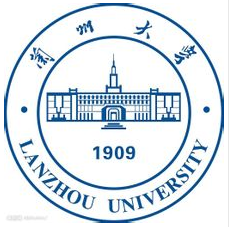
Lanzhou University, founded in 1909 is a major research university located in Lanzhou, Gansu Province, China. It is one of the key universities under Ministry of Education, China (Project 985 & Project 211). It is also the best comprehensive university in northwest of China. It provides programs for undergraduate, graduate students on four campuses--three in Lanzhou city central and one in Yuzhong, which is about 30 miles away from the main campus. Total enrollment is approximately 20,000. Undergraduate students study at the Yuzhong campus. There are 6 National Bases for the Training of Researching and Teaching personnel for Fundamental Disciplines. The University operates an additional 35 institutes along with 1 national key Laboratory of the Applied Organic and 3 key laboratories of Arid and Grassland Ecology, West China Environment, Magnetism and Magnetic Materials of the Ministry of Education, a key laboratory of Grassland Agro-ecosystem of the Ministry of Agriculture. Lanzhou University was one of the first universities entitled to enroll Bachelor Master’s and Doctoral degree candidates in 1981. Lanzhou University is one of the top ten universities in contributions to academic publications in international journals frequently cited by ongoing research from around the world.
-

Sun Yat-sen University, informally called Zhongshan University, has a main campus in Guangzhou, Guangdong province, and a secondary one in Zhuhai. The University is named after the man who founded it in 1924 - Sun Yat-sen, a prominent political figure in the Republic of China. It includes schools and departments in the humanities, social sciences, natural sciences, technical sciences, medical sciences, pharmacology, and management science. In 2011, it had 36,000 students in 23 schools and colleges and offered graduate courses across 17 disciplines, including schools in medicine, dentistry, law and business. In its 2011-12 rankings, Times Higher Education World University Rankings placed the university somewhere between the positions 276 and 300 worldwide.
-
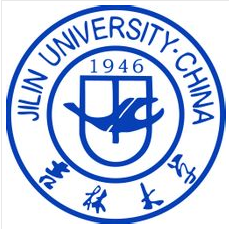
Jilin University is a leading national university under the direct jurisdiction of China’s Ministry of Education. Jilin University is one of the most prestigious “Top 10” universities in China, and has several research projects in automobile engineering, chemistry, computer science, electrical engineering and biology. JLU also provides undergraduate and graduate programs in law, literature, philosophy and veterinary science. It is one of the key universities involved in China’s Project 985 and Project 211.Jilin University is a comprehensive and national key university. JLU offers a variety of degree programs. It has now 115 undergraduate programs, 192 Master's degree program, 105 doctoral degree programs, and seventeen post-doctoral programs. In 2003 the university enrolled 59,000 full time students, including more than 10,000 graduate students. At present there are 6,540 faculty members, with twenty members of Chinese Academy of Sciences and Chinese Academy of Engineering, 1270 full professors, and 1652 associate professors.